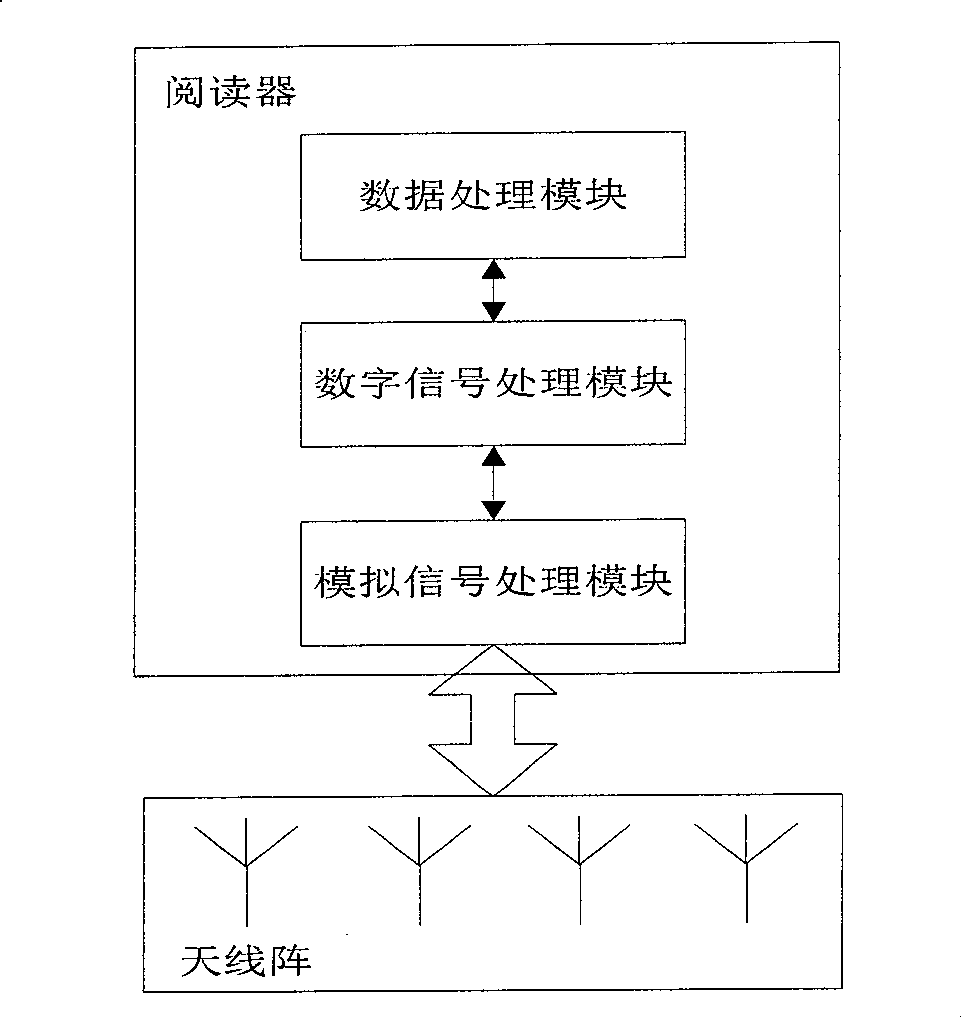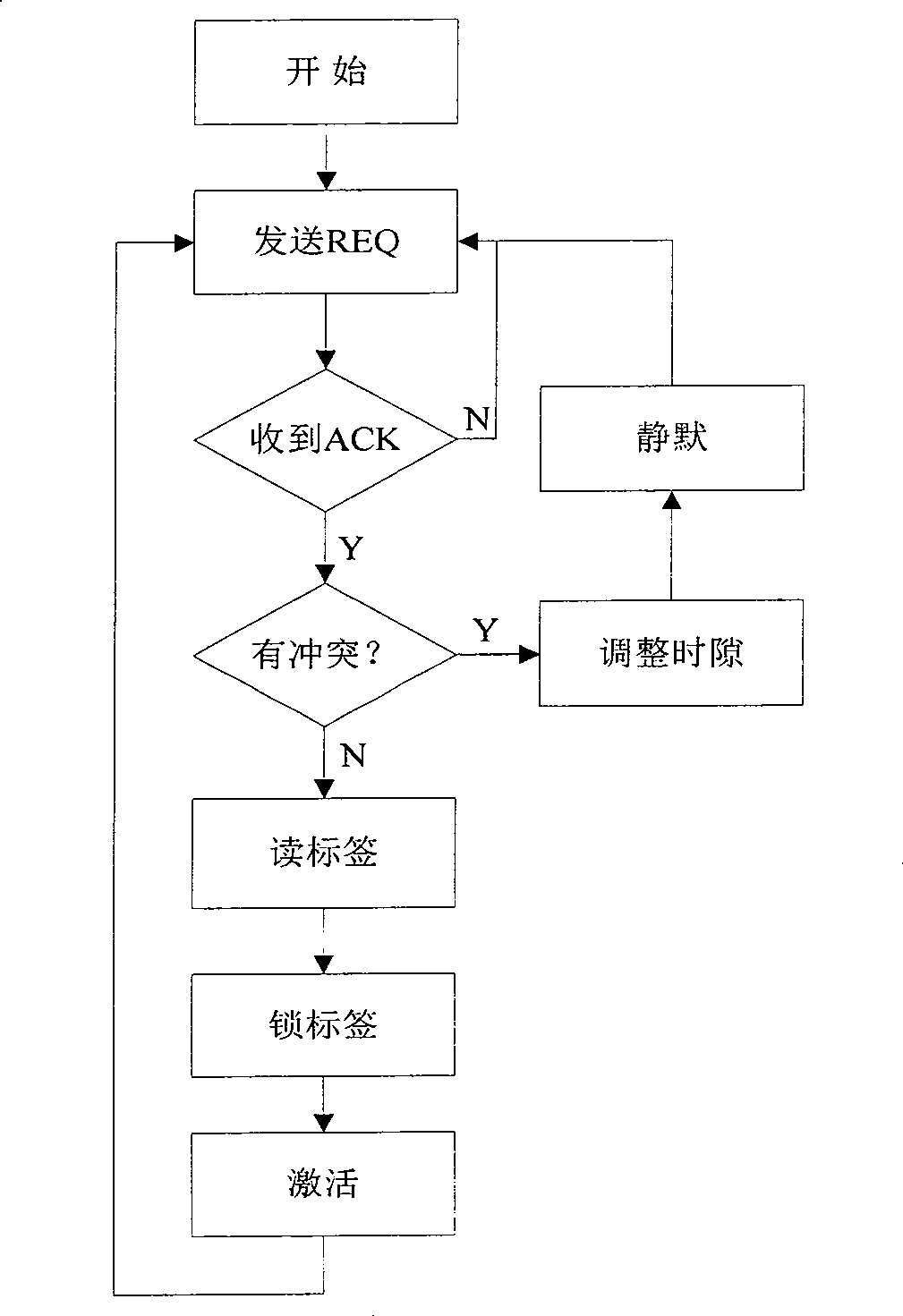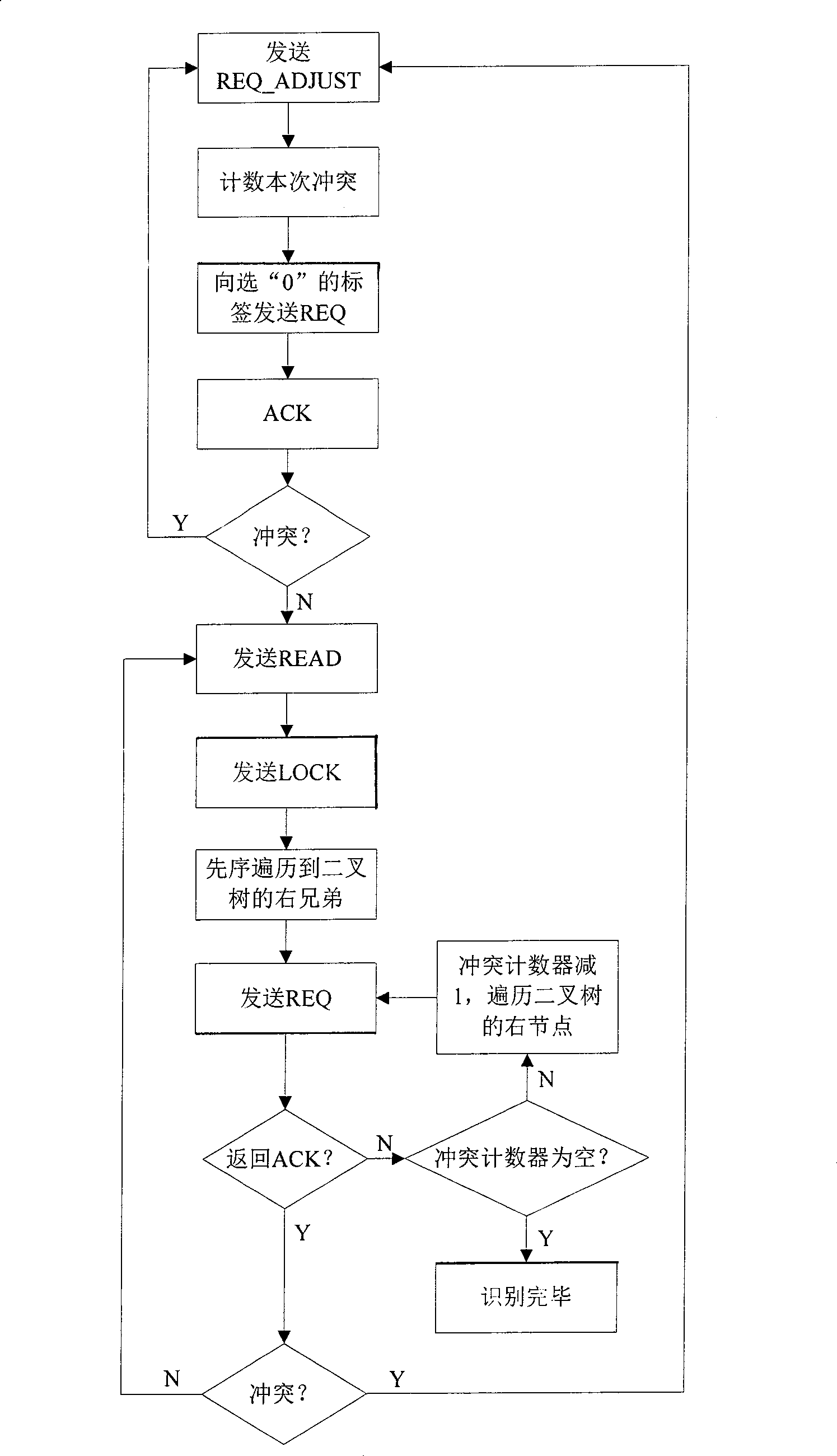Intelligent RFID reading system anticonflict scheduling method
A technology of reading system and scheduling method, which is applied in the field of radio frequency identification, can solve the problems of long search time and low recognition efficiency, and achieve the effect of reducing the number of tags, avoiding too deep depth, and reducing the probability of conflict
- Summary
- Abstract
- Description
- Claims
- Application Information
AI Technical Summary
Problems solved by technology
Method used
Image
Examples
Embodiment
[0034] Such as figure 1 The schematic diagram of the shown RFID reading system, the RFID reading system includes an analog signal processing module, a digital signal processing module, a data processing module and an antenna array, the antenna array is connected with the analog signal processing module, and the data processing module passes the digital signal The processing module is connected with the analog signal processing module. In the present invention, 4 antennas are used as the antenna array, and the effective coverage areas of two adjacent antennas are in contact to reduce mutual overlap. However, the multi-antenna described in the present invention is more than 4 antennas, the number of reader control antennas can be adjusted according to the specific situation.
[0035] Such as figure 2 The schematic diagram of the interaction between the reader and the tag is shown, and its workflow is:
[0036] (1) Send a REQ command to the tag through the antenna;
[0037] (...
PUM
 Login to View More
Login to View More Abstract
Description
Claims
Application Information
 Login to View More
Login to View More - R&D
- Intellectual Property
- Life Sciences
- Materials
- Tech Scout
- Unparalleled Data Quality
- Higher Quality Content
- 60% Fewer Hallucinations
Browse by: Latest US Patents, China's latest patents, Technical Efficacy Thesaurus, Application Domain, Technology Topic, Popular Technical Reports.
© 2025 PatSnap. All rights reserved.Legal|Privacy policy|Modern Slavery Act Transparency Statement|Sitemap|About US| Contact US: help@patsnap.com



